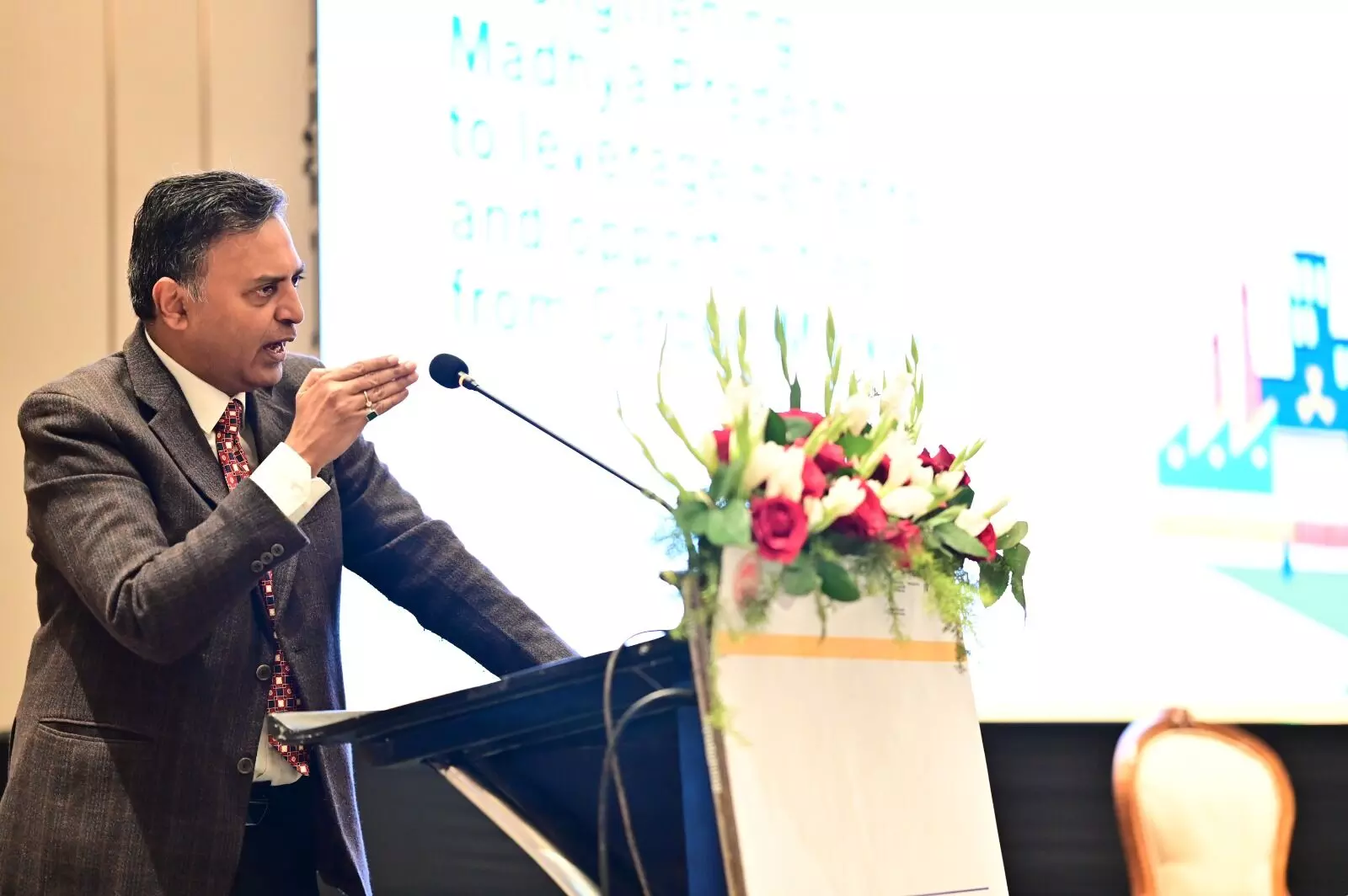Madhya Pradesh Explores Carbon Markets to Boost Climate Action and Economic Growth

Government, private enterprises and other key stakeholders gathered in Bhopal on Wednesday to discuss the transformative potential of carbon markets for Madhya Pradesh. Organised by Environmental Planning and Coordination Organisation (EPCO), an arm of the state government’s environment department, and WRI India, the workshop titled “Strengthening the State of Madhya Pradesh to Leverage Benefits and Opportunities from Carbon Markets” brought together experts to discuss strategies to integrate carbon finance into the state’s climate and development plans.
In his keynote address, Manu Shrivastava, Additional Chief Secretary, Department of New and Renewable Energy, said, “Climate plans are moving towards greater economic viability and carbon markets are playing a more important role than ever in this transformation. Carbon trading is now viable for several sectors in Madhya Pradesh, including solar energy and waste management. With advances in technology, government policy support, assistance from financial institutions, and strong supply chains, more sectors will soon be able to participate in carbon markets.” Through such capacity building workshops, we aim to learn how to better incorporate carbon markets in our projects.
Assessing project feasibility during the concept phase can be an important approach. WRI India has played a key role in supporting the state government to develop such initiatives.
Carbon markets are emerging as an essential tool to address the dual challenges of climate finance and emissions reduction. By allowing the trading of carbon credits – which represent one metric ton of CO2 or equivalent greenhouse gases – these markets provide an effective way to achieve climate goals.
Representatives from policymakers and private enterprises at the workshop praised carbon markets as an important tool to achieve climate goals while advancing economic growth. The global status of carbon markets, India’s evolving domestic market, and sector-specific opportunities for Madhya Pradesh were discussed in detail.
The workshop began with an overview of the global carbon market structure under Article 6 of the Paris Agreement, which governs carbon markets. Article 6 introduces a mechanism for international cooperation on carbon emission reductions, which consists of three key components. First, Article 6.2 allows countries to join bilateral and multilateral agreements to directly trade emissions reductions under negotiated terms. Second, Article 6.4 establishes a global carbon market administered by the UN to ensure standardized carbon credit trading. Finally, Article 6.8 focuses on non-market cooperation, enabling countries to provide financial and technical support without engaging in trading of emission units.
Subrata Chakraborty, Associate Program Director, Carbon Markets, WRI India, said on the current global situation that “About 40% of carbon pricing systems in the world let businesses use carbon credits to reduce their tax or compliance costs, including 7 carbon taxes and 23 emissions trading schemes (ETS). For example, companies in Singapore can offset about 5% of their taxable emissions with international carbon credits. Similarly, South Korea, Mexico and California allow businesses to use a limited number of carbon credits from approved sources to meet their obligations.”
Sharing insights on the domestic carbon market landscape in India, Varun Agarwal, Program Manager, WRI India, said, “Our research suggests that India’s carbon market could help reduce an additional 1.3 billion tonnes of carbon dioxide emissions from now to 2030 and cut the cost of emissions reductions by 28% compared to a no-market scenario.” However, the success of India’s carbon market will depend on setting ambitious targets in the compliance market – a regulated system where entities trade carbon credits to meet legally mandated emission reduction targets. It will also require maintaining strong additionality criteria in the offset market, which allows organizations to buy carbon credits to offset their emissions by funding projects that reduce or remove greenhouse gases. These measures are necessary to avoid an oversupply of carbon credits. The technical session discussed how Madhya Pradesh, with its diverse natural and industrial resources, is uniquely positioned to take advantage of opportunities in sectors such as energy, forestry, industry and livestock.
Participants emphasized the need for developing technical expertise and institutional capacity within Madhya Pradesh to leverage the benefits of carbon markets. They discussed challenges such as compliance with global standards, equitable distribution of carbon revenues, and ensuring transparency in emission reductions.
The workshop concluded with a call to establish Madhya Pradesh as a leader in India’s carbon market landscape. Saransh Bajpai, Associate Program Director, WRI India, said that sub-national governments like Madhya Pradesh are uniquely positioned to play a leading role in engaging with Article 6 instruments. This approach can not only mobilize finance but also demonstrate leadership in climate action. Capacity development can fully harness the opportunities provided by carbon markets to Indian states to address challenges such as climate action and capacity building.
